ASU alumna Terri Russell Green supports soldiers through federal work
Alumnus Terri Russell Green, who resides in Huntsville, Alabama is employed by the United States government. Green has worked as a logistician at Redstone Arsenal for the past 30 years where she conducts data analysis. She is also a member of the Rocket City Chapter of the National Alumni Association.
September 18, 2021
In our great nation, we are taught at an early age to respect and appreciate the role of our military. Through the celebration of Memorial Day, Veteran’s Day, and even by reciting our Pledge of Allegiance each morning before the flag, we honor those in service who fight every day to protect our freedoms. ASU alumna Terri Green takes this appreciation to a deeper level as she has made a career out of supporting the nation’s soldiers. Working as a logistician for the federal government, she utilizes the skills learned as a Hornet every day to assist those who protect the public.
Originating from Mobile, Alabama, Green grew up as one of eight children to Bernice and Arthur Ray Russell. Considering her father served in the United States Navy, her family often changed addresses to account for his many postings.
“We got the chance to travel along the East Coast while he worked from base to base in the military,” she said.
Unlike many military brats, she enjoyed the experiences that came with moving from state to state. Having lived in Florida, Virginia, and Washington D.C., Green was granted the opportunity to meet a wide array of individuals, witness different cultures, and take advantage of all the great things that each city provided. The family travels were brought to an end in 1975 when her father retired from the Navy and resettled their family in Mobile.
Green attended L. B. Williamson High School as a teenager, where she played an active role in the school marching band as a majorette dancer. It was through participation with the Williamson band that she first came into contact with the wonders of the Hornet Nation.
“That is how I came to know about Alabama State. It was from being a majorette in the band and performing at the Gulf Coast Classic and the Turkey Day Classic,” she said.
With the legendary Gulf Coast Classic taking place annually in her hometown, Green and her band were often at the very center of festivities. Not only did the Mighty Marching Hornets practice for their halftime show on the school’s field, but the Williamson marching band also had the honor of performing the pregame show. Weeks later, Green and her band traveled to Montgomery, Alabama, to showcase their talents in the Turkey Day Classic Parade. It was then that she would first walk the campus of ASU, unknowing at the time that she would soon walk the campus as a Hornet herself.
It was also as a high school student that she found her love for numbers and mathematics. Though she initially held childhood dreams of becoming a grade school teacher, her finance proficiency led her down a new path.
“I love working with numbers, but I took accounting in high school,” said Green. “And that is when I decided that that was what I wanted to do when I grew up. I wanted to be an accountant.”
She graduated from Williamson High School in 1981 and decided to continue her studies at Bishop State Community College located in Mobile, Alabama. By staying local, Green could easily transition into her collegiate experience while staying in the comforts of her community. Though the Wildcat spirit was strong on the Bishop campus, there were also plenty of Hornet Nation advocates present.
“Dr. Yvonne Kennedy was the president at the time, and she went to Alabama State,” said Green. “There were a lot of teachers at Bishop that had gone to Alabama State. Most of my high school teachers had gone to Alabama State. So I was surrounded by Hornets.”
In 1983, she concluded her studies at Bishop with an associate degree in business administration. That same year she followed the footsteps of the many Hornets in her community and enrolled as a student at ASU. Still holding a love for numbers and aspirations of becoming an accountant, she joined the College of Business Administration as an accounting major.
It was in the College of Business Administration that she encountered many instructors who she considers to be instrumental in her development. She fondly remembers time spent learning under Mr. Kingsley, Dr. Patricia Gibb, Dr. Madison, Norman Walton, Ph.D., and many more. She most especially reveres time spent with Dr. Jean Crawford, who instructed the accounting class that would explicitly prepare her for her dream career.
“She was a very sweet lady,” said Green. “I always enjoyed being in her class.”
As a student, Green took part in many activities that allowed her to truly engage with the entire Hornet population. She pledged to Delta Sigma Theta Sorority Inc. by way of the Beta Eta Chapter in 1987. Her involvement with her sorority encouraged her to run for the position of Miss Alabama State University for the 1987-88 academic year. As the senior members of Green’s sorority urged her to join the campaign for the crown, they did not know that reigning as Miss ASU was a long-time dream of hers. After entering the race with a few of her line sisters, campaigning for weeks, organizing giveaways, and building a following on campus, Green was crowned.
“It just all came into fruition,” she simply said. “That is my most fond memory. I just loved being Miss ASU. I love everything about ASU.”
As Miss ASU, she had the honor of representing the university at a great number of sporting events, banquets, ceremonies, and more. Of all of these engagements, she holds most dearly her chance to return to her hometown for the Gulf Coast Classic while wearing the crown. Not only was it an opportunity for her to reconnect with her family and the community that raised her, but it also allowed her to fulfill the dream that began at the Gulf Coast Classic held just years before.
Recounting her thoughts as a high school student, Green said, “When they introduced Miss ASU, I was like, “I want to be Miss ASU one day!’ Back then, they brought her out on the field with her royal court. Now here I am on the same field as Miss ASU with my court.”
From her high role in the university, interaction with faculty and administration, and community involvement, Green became truly conscious of the massive role that ASU played in the Civil Rights Movement of the 20th century and the role that it continues to play in the Montgomery community. She developed a deep appreciation for figures such as Robert Abernathy, who organized the Montgomery Bus Boycotts and more, and Gloria Battle, an ASU student. The latter assisted in making flyers that told the public the details of the boycotts. From its vital role in Black history, Green considers ASU to not only be a respectable university, and a national treasure.
“When I look back today, it just makes me even more proud to have graduated from Alabama State,” she said. “We need to remind people of the significance, its rich heritage, and the contributions that the students of ASU made.”
In 1988, she finished her undergraduate experience with a bachelor’s degree in accounting. Upon entering the workforce, Green ran into great trouble trying to find a job in her area of expertise. As the market for accountants suffered, she was forced to tap into her other interests to make a living. For three years, she worked as a substitute teacher at Palmer Pillans Middle School and her alma mater, Williamson High School.
“I always wanted to be a teacher as a child, so I stayed there for a while,” she said. “From there, I was picked up as a logistician for the federal government.”
Employed by the United States government, Green has worked as a logistician at Redstone Arsenal for the past 30 years. Located in Huntsville, Alabama, Redstone Arsenal is an army military base built during World War I for the main purpose of producing chemical weapons. The base now spreads over 38,000 acres and serves as the center for the U. S. Army’s missile and rocket programs. While Green’s exact role within Redstone Arsenal is classified, she does serve as a logistician where she conducts data analysis.
“We support the army, but they have always told us not to disclose our work,” she said.
Over her three decades with Redstone Arsenal, Green is pleased to say that she works in a cooperative and productive environment. With everyone sharing the same goal, they focus their energy on all things necessary to support the soldiers and federal government. Believing that the biggest obstacle faced was the question of her abilities, she insists that the proof of her competence is apparent in her work.
“There really is not any school discrimination,” she said. “No Auburn versus Alabama. Or, ‘Oh you went to Alabama State?’ It is having to prove that you are capable of doing the work that you have.”
Green considers the most rewarding aspect of her work to be in serving the soldiers. As her father, older brother, and husband are all military veterans, her work holds more personal value than it would for the average logistician.
“I really do feel a closer connection to the men and women who serve in the military,” she said. “They have a tremendous job on their shoulders in protecting our country.”
As a well-respected asset to Redstone Arsenal, she has been the recipient of a number of recognitions and achievements over the years. Allowing her to be so successful in her career, she credits her nature as a people person and natural-born leader. By working in an environment with many moving parts and teams, her ability to collaborate with a number of individuals at a time has led to great advancements.
“I am able to relate to people,” Green said simply. “I am a leader, not only in my job but also in my community.”
She also credits much of her success to life skills and grit acquired as a student at ASU. She appreciates her time maturing in an era with limited technological resources, which forced her to tackle the real world headfirst. Though it proved to be tough at times, she assures that she was surrounded by instructors and faculty who provided ample guidance and tough love.
“We learned how to adapt,” she said. “You learned how to network. You learned how to survive. We really just grew up on campus.”
In her personal life, Green is supported by her husband, Larry Green. After 20 years, and still counting, of marriage, they share their children, Jared Ross and Jasmine Green. She is an active member of the National ASU Alumni Association, specifically of the Rocket City Alumni Chapter.
“I have served as the vice president, the treasurer, and the secretary,” she said. While mentioning her experience as an ASU alumna living in Huntsville, she said, “We are clearly outnumbered, but there are a few Hornets up here.”
She also serves her community as the president of Central North Alabama Alumnae Chapter of Delta Sigma Theta Sorority Inc. Between her work with both organizations, Green attempts to encourage and get involved in any way possible.
“It is a balancing act that I have to do, but I do my best to support them both,” she said.
To the current students of ASU, Green offers a few words of advice. Along with stressing the importance of maintaining good grades, she urges students to begin networking as that is the key to professional growth. She also asks that today’s Hornets delve into the history of our university, as recognizing its importance in the community will instill pride like no other.
“Know and understand the significance of ASU,” she said simply.
To all of Hornet Nation, she encourages us to invest in our ASU. While monetary donations are appreciated, she also values the donations of time, mentoring of students, recruiting prospective students, and much more.
“We have to give back,” said Green. “We have to support and keep the faith in our university.”
Knowing that these investments will keep the university in a positive light, she wishes for ASU to be granted its well-deserved respect.


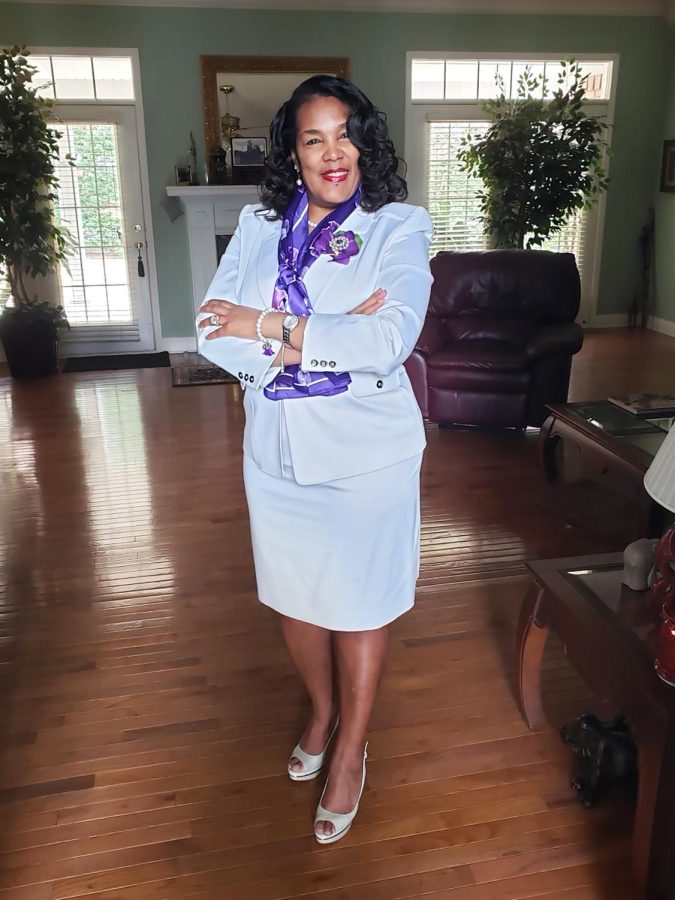





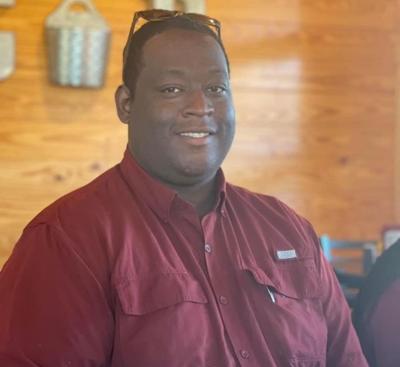

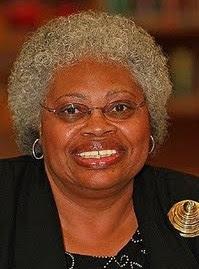
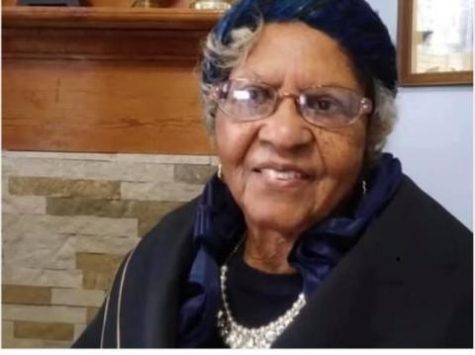
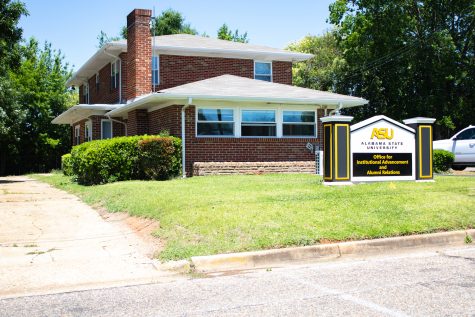

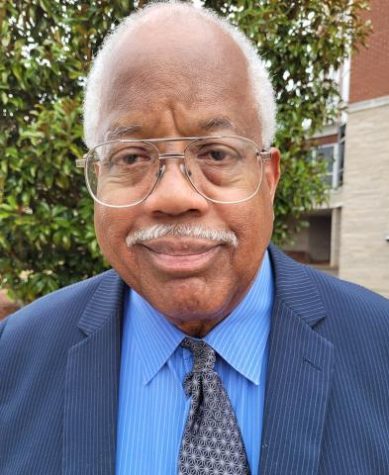

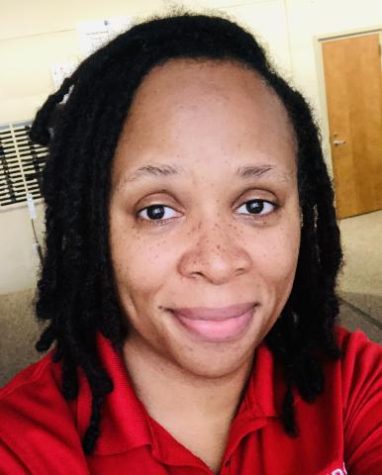
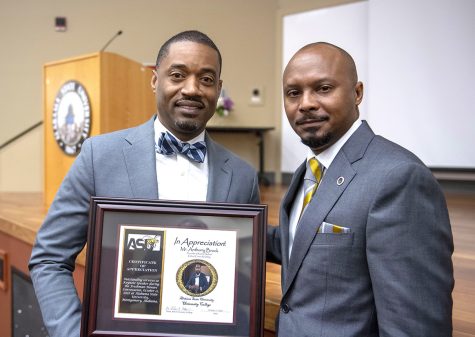
Tracy Coleman • Nov 20, 2021 at 5:14 pm
Congratulations Terry,so proud of you
Albert • Nov 20, 2021 at 2:40 pm
Great article and well written!